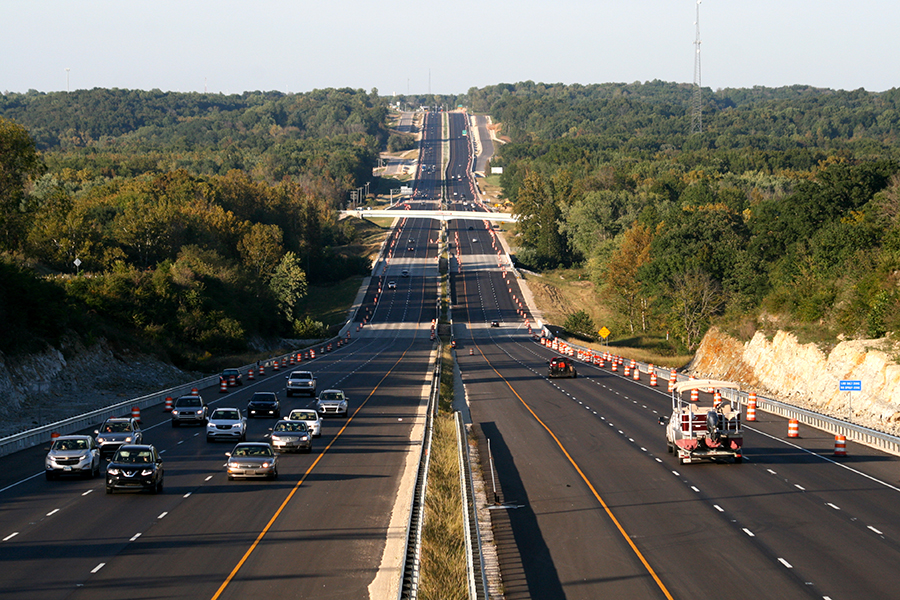INDOT, Purdue to Develop Wireless Electric Vehicle Charging Solution for Highway Infrastructure

Two professors in Purdue University’s Elmore Family School of Electrical and Computer Engineering are part of a project to develop the world’s first contactless wireless-charging concrete pavement highway segment. Dionysios Aliprantis, professor of ECE, and Steven Pekarek, the Dr. Edmund O. Schweitzer, III Professor of ECE, are among the Purdue researchers working with the Indiana Department of Transportation. The project will use innovative magnetizable concrete – developed by German startup Magment GmbH – enabling wireless charging of electric vehicles as they drive.
“Indiana is known as the Crossroads of America and we’re committed to fortifying our position as a transportation leader by innovating to support the emerging vehicle technology,” Governor Eric J. Holcomb said. “This partnership to develop wireless charging technology for highways sends a strong signal that Indiana is on the leading edge of delivering the infrastructure needed to support the adoption of electric vehicles.”
The effort is part of the Advancing Sustainability through Power Infrastructure for Road Electrification (ASPIRE) Initiative, an Engineering Research Center funded by the National Science Foundation (NSF). ASPIRE involves the collaboration of universities, government laboratories, businesses, and other stakeholders developing next-generation charging technologies for the electrification of Transportation vehicles of all classes.
“We’re quite eager to see this first of its kind project unfold in Indiana,” said David Christensen, ASPIRE Innovation Director. “This partnership that includes Magment, INDOT, Purdue University, and the larger ASPIRE consortium has great promise to really move the needle on technology development, which will, in turn, enable more positive impacts from deeper electric vehicle adoption.”
The Purdue team also includes Nadia Gkritza, Professor of Civil Engineering and Agricultural and Biological Engineering and ASPIRE Campus Director at Purdue University, and John E. Haddock, professor of civil engineering.
The project will include three phases and is expected to begin later this summer. Phases 1 and 2 of the project will feature pavement testing, analysis, and optimization research conducted by the Joint Transportation Research Program (JTRP) at Purdue’s West Lafayette campus. In phase 3, INDOT will construct a quarter-mile-long testbed at a location yet to be determined, where engineers will test the innovative concrete’s capacity to charge heavy trucks operation at high power (200 kilowatts and above). Upon successful completion of testing of all three phases, INDOT will use the new technology to electrify a yet to be determined segment of interstate highway within Indiana.
Source: INDOT, Purdue to Develop Wireless Electric Vehicle Charging Solution for Highway Infrastructure
